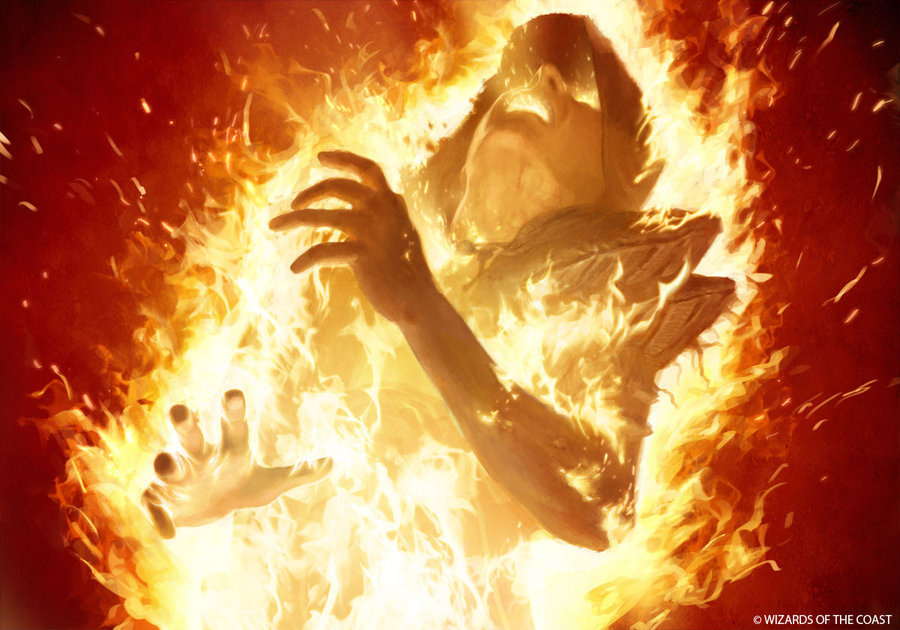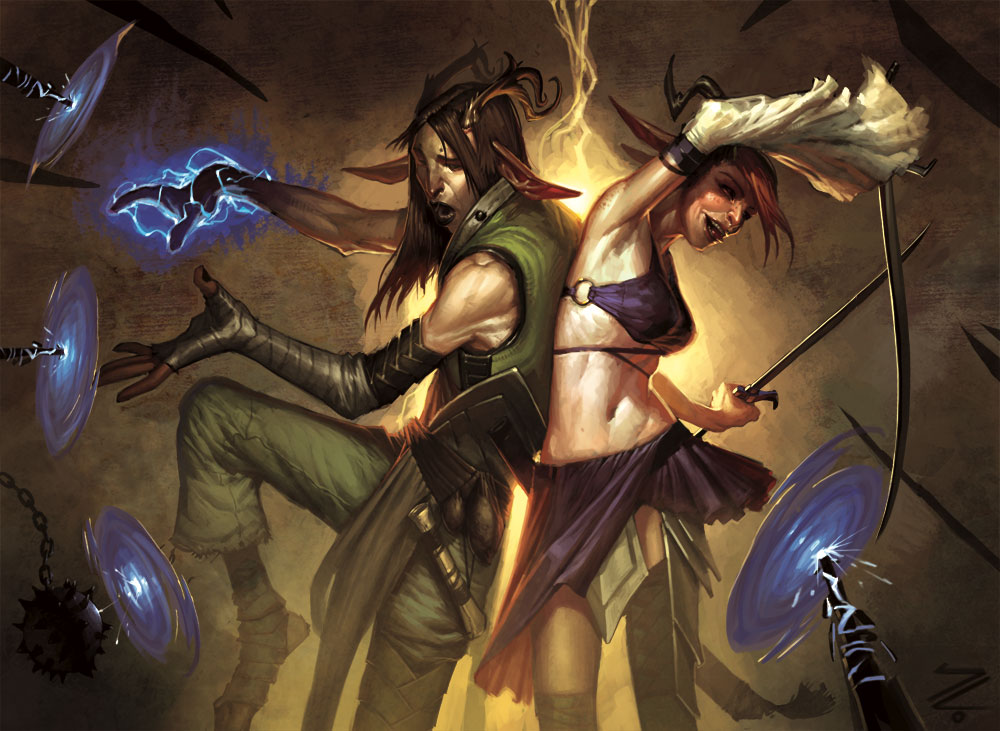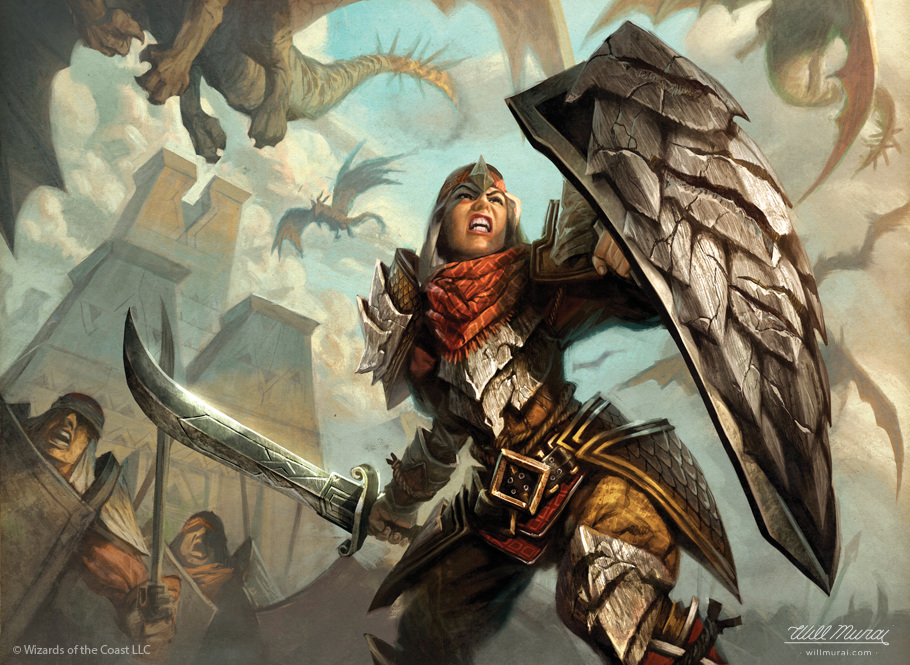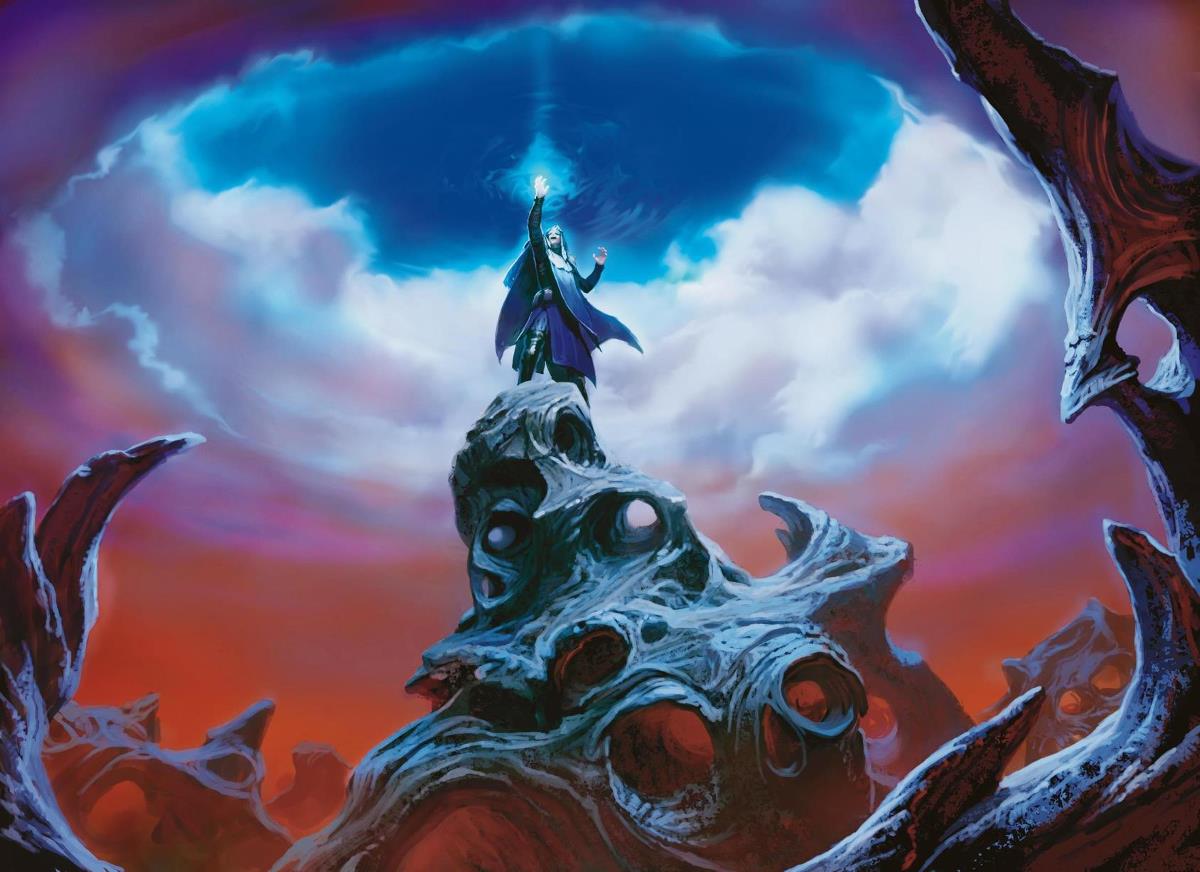(This is a continuation of the previous post - A Bit of Advice About: Getting Critique)
(Artwork: Adam Paquette)
Establish Objectives
As a follow-up post about getting critiqued, I thought it just as important to point out some techniques to employ when giving critiques. I find it helpful to use some of these thoughts up front so that the person getting the critique can get the most out of it.
Establish Objectives
First and foremost, what is the person getting critiqued trying to learn? I find if you don't really lay down these ground rules from the get-go, the person getting critiqued may or may not get what they want to learn out of the critique. This is not to say that you can't give an all-over or all-inclusive critique about each aspect of a piece or body of work, just that you should establish some goals to your critique. Doing this will help you keep track of your timeline, especially if you have multiple critiques back-to-back or to really help one person get the most out of your advice.
Establishing Objectives can also help narrow your focus and keep you on task just as well. It's easy for a critique, especially midway through, to start to get very conversationalist, or even attack-and-parry. I've been privy to critiques where the entire body of work was needlessly prodded at to simply make the critiquee simply go away. This is the exact opposite effect you want to achieve by the end of it. Couple this with the fact that narrowing the focus up front can help the critique from going unnecessarily long as well. Sometimes a well thought out - but brief - critique is the best approach. Going into it with a clear goal in mind for the person and then sticking only to that criteria, especially if there are multiple critiquers present is extremely effective.
Overall, it's very important to be clear and up front about what kinds of things the person getting the critique wants to gain from you, and for you to approach it as though you have something to learn from them as well.
Establishing Objectives can also help narrow your focus and keep you on task just as well. It's easy for a critique, especially midway through, to start to get very conversationalist, or even attack-and-parry. I've been privy to critiques where the entire body of work was needlessly prodded at to simply make the critiquee simply go away. This is the exact opposite effect you want to achieve by the end of it. Couple this with the fact that narrowing the focus up front can help the critique from going unnecessarily long as well. Sometimes a well thought out - but brief - critique is the best approach. Going into it with a clear goal in mind for the person and then sticking only to that criteria, especially if there are multiple critiquers present is extremely effective.
Overall, it's very important to be clear and up front about what kinds of things the person getting the critique wants to gain from you, and for you to approach it as though you have something to learn from them as well.
(Artwork: Mandy Jurgens)
It's very important to realize that the critique is not meant to reflect your personal tastes or flair for a specific art style or technique. The main thing to realize when walking into a critique is to remember that you're bringing your experience to the table, be it experience in certain medias or techniques, or your skill level, or perhaps even your differing viewpoint that might change someone's outlook on a piece. This is why I find it smart to get critiques at all skill levels, from the highest pros, to the lowest level newbie. The whole point of a critique is to look at the work for what it is and not look for the outward opinion that you may personally have towards the piece.
Make sure that you use whatever objective was established (see above) and use that as your baseline to talk about the piece in that light.
Make sure that you use whatever objective was established (see above) and use that as your baseline to talk about the piece in that light.
(Artwork: Lizzie John)
"Attack" the Work and NOT the Creator
One thing that's always hard for many critique groups that I've been a part of is for both the person giving and receiving the critique is to remember to leave the PERSON out of it. You're looking at the body of work so that you might be able to help that person see it from a different angle, or learn a new technique. Your goal is to not go out of the way to single that person out for their specific tastes.
For example, I've been in a critique where the person at the forefront obviously had disgust for the anime aesthetic and made it very known all throughout that they were going to pick on that person for the fact that they enjoyed it. You can imagine that the end result for that person's critique, and the entire experience in general, was not favorable. They ended up in more of a rage by the end, and both parties seemed to think of each other as lesser artists, and people.
A good way that the entire situation could have been alleviated would have been to ask a question what their viewpoint is on the anime aesthetic beforehand. Maybe try their best to get into that person's head space first and then discover what they could do better to match that aesthetic. Or if you don't know anything about it, politely tell them up front that you have no knowledge of that style and see if there's something that you can help with outside of that realm. Maybe they like a certain style, but lack proper anatomy structure, or color theory, or composition techniques, etc. There are almost infinite things you can touch on, from the grand to the minute.
Of course, this can be a very difficult thing to do. Sure, there could be an artist out there of great skill that also has thoroughly studied their art history and/or has the technical knowledge to backup their viewpoints to the maximum, but again, that's outside the realm of the person giving the critique. They should try to distance their personal opinion from their critique.
(Artwork: Yue Wang)
Use the "Flip/Flop" Technique
Another technique that I've seen used effectively, I'll simply refer to as the flip/flop technique.
What this means is, for every negative quality you see in a piece, try and find something to positive to reinforce. This will help to lessen the blow of something extremely devastating like, "The anatomy simply isn't correct." You could follow that up with anything really - simply a ", but the way you paint eyes (clothes, grass, hair, etc.) is really impeccable."
This seems to not only lessen the blow of something very devastating, possibly even requiring a complete overhaul, but helps them to realize some things that they've done right! The point of this technique is to ultimately give them things that they can study after-the-fact to really blossom even further!
What this means is, for every negative quality you see in a piece, try and find something to positive to reinforce. This will help to lessen the blow of something extremely devastating like, "The anatomy simply isn't correct." You could follow that up with anything really - simply a ", but the way you paint eyes (clothes, grass, hair, etc.) is really impeccable."
This seems to not only lessen the blow of something very devastating, possibly even requiring a complete overhaul, but helps them to realize some things that they've done right! The point of this technique is to ultimately give them things that they can study after-the-fact to really blossom even further!
(Artist: Andrey Surnov)
Remember: Growth is Key
Remember: Growth is Key
This can be true for both sides - people have this tendency to forgot, or hell even become elitist, that both sides can grow from a critique. Just because you're being asked for / are providing critiques as a service, doesn't mean that you are some higher power or anything. As a friend of mine says, "everyone poops", and this includes everyone, from the top tier all the way to the bottom rung. We're all people with specific emotions at the end of the day. This is mainly to say that if you, even as the person giving the critique, go into it with an open mind, you might learn just as much from the person you're critiquing!
Here's an example: one of my years during college, we were all gathered together, doing group critiques on certain projects. Some of the people were instantly trying to jump all over one person in particular for something minor, like that person's anatomy. Sure, it needed help, but that wasn't actually what the point of the piece was. The artist being questioned was actually after very specific composition techniques. They weren't focused on learning how the anatomy was in the piece, particularly they were trying to learn how to lead the eye. SO when you take that into consideration over the other issues, you can begin to critique that piece of work on a completely different merit than what they had originally intended.
That's the point of the story, once that other small group took the thought of anatomy and things out of their head, they actually learned some very valuable lessons about how to lead the eye, how to make effective composition and ultimately, how to stay focused on the issues that were being asked of by the individual that asked for the critique.
---------------------------
REMEMBER: This list is not all inclusive. There are a plethora of other options and suggestions to give to people who are both critiquing AND getting critiqued.
If you have any other techniques not mentioned here for either of getting or receiving a critique, I'd love to hear them below!
Until then, thanks for reading!














